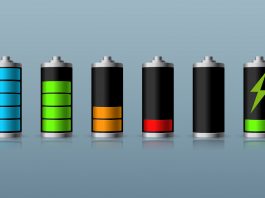The European Commission has proposed the revaluation and modernisation of EU legislation on batteries, addressing the social, economic, and environmental issues related to all types of batteries.
The Commission suggests that according to new EU legislation on batteries, batteries placed on the EU market should become sustainable, high-performing, and safe along their entire life cycle. This means that batteries must be produced with the lowest possible environmental impact, using materials obtained in full respect of human rights as well as social and ecological standards. Batteries must be long-lasting and safe, and at the end of their life, they should be repurposed, remanufactured, or recycled, feeding valuable materials back into the circular economy.
This proposal also recommends that Member States submit to mandatory requirements for all batteries placed on the EU market. Such requirements include: the use of responsibly sourced materials, restricted use of hazardous substances, low carbon production methods, increased performance and durability, and responsible labelling. The Commission may also require Member States to meet collection and recycling targets, which are essential for the development of a more sustainable and competitive battery industry.
Vice-president of the European Commission Maroš Šefčovič said: “It is possible to strengthen the competitiveness of our industry in Europe without weakening our ambition for climate neutrality. Quite the contrary. As Industry Commissioner, I will continue to play my role fully in supporting the transition of all players – large and small – in our industry.”
With this proposal, the Commission also aims to boost the circular economy of the battery value chains and promote more efficient use of resources with the aim of minimising the environmental impact of batteries. From 1 July 2024, only rechargeable industrial and electric vehicles batteries for which a carbon footprint declaration has been established, can be placed on the market.
Commissioner for Environment, Oceans and Fisheries Virginijus Sinkevičius said: “Batteries are essential for crucial sectors of our economy and society such as mobility, energy and communications. This future-oriented legislative toolbox will upgrade the sustainability of batteries in each phase of their lifecycle. Batteries are full of valuable materials and we want to ensure that no battery is lost to waste.”





